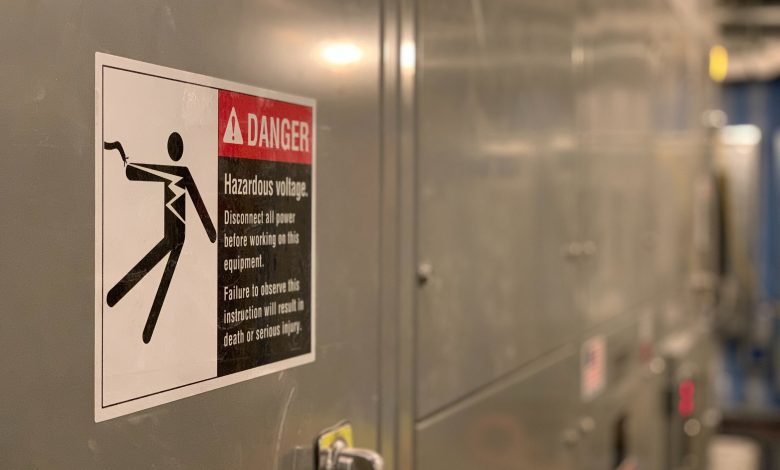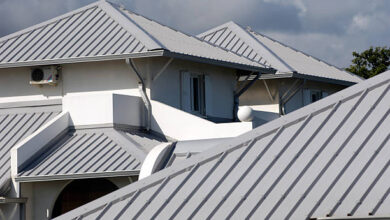How To Avoid the Top 5 Electrical Hazards

Staying safe around electricity is paramount, whether in your home or office. However, people use electricity tools daily, and they are so used to them that we unintentionally let our guard down. Feeling comfortable around appliances and electrical hazards devices doesn’t mean you still can’t get hurt.
In fact, in 2020, 126 workers died due to exposure to electricity in the US only. The overall trend continues with 1,000 deaths per year due to electrical injuries. The number of fatal electrical injuries is approximately the same in private residences and industrial sites.
To stay safe, you need to identify the electrocution risks and the electrical hazards that may lead to them. Here are the top five electrical hazards and how to avoid them.
A missing or faulty pass to ground
Each one of the electricity tools and appliances has to be properly grounded. In an unforeseen event, such as an equipment failure, the electrical current goes into the ground. If the pass to the ground is missing or discontinuous, you can get electrocuted and even suffer life-threatening injuries.
Most tools and appliances often have proper ground. It means that the faulty grounding is often a result of a malfunction. The best way to avoid this electrical hazard is to:
- Ensure you use a top-notch extension cord by a trustworthy brand;
- Don’t remove ground prongs from any cables in your home or offices;
- Have professionals regularly inspect your systems for proper grounding;
- Ensure all your appliances and electricity tools are using cords and wall sockets with ground prongs;
- Ensure your business is compliant with local governing regulatory agency requirements.
Using tools or appliances with no respect to instructions
All electricity tools and appliances manufacturer has various safety features installed in them. The crucial point here is that these safety features are relevant to the specific use cases of any given tool or appliance. Using them outside the intended use case unnecessarily exposes you to electrical hazards.
For instance, you can damage the tool or appliance and get electrocuted or buy a cheap device that wasn’t inspected and approved by a local safety agency. To avoid this specific hazard, you can:
- Ensure that you read instructions and use the tool or appliance only as prescribed;
- Buy only tools and appliances that were tested and approved by a local safety agency;
- Immediately stop using a tool or appliance if you smell burning, see electrical sparks, or the equipment starts acting strange.
Improperly keeping and storing electrical devices.
One of the deadliest combinations out there includes water and electricity. It can cause electrocution, which can severely hurt or kill you. Simply put, water in electricity tools and appliances can cause short circuits and electrocute you whether you touch the tool or water.
Sometimes it happens because people unintentionally drop appliances into the water, have a water splash on an electricity tool, or improperly store the electrical equipment. To avoid it, you should:
- Access your home’s electrical panel to turn off the power supply to your entire home before unplugging the wet appliance or retrieving an electricity tool after you drop it in the water;
- Avoid storing appliances and tools in areas of your home with increased moisture, such as the basement, bathroom, attic, and crawl space;
- After an incident, you shouldn’t dry the wet tool and use it before having an appliance technician inspect it to ensure it’s safe for use.
Completely ignoring frequent circuit breaker trips.
The circuit breakers are set to trip whenever an overload or a short circuit occurs. They are your last line of defense. If you notice that one or a couple of your circuit breaker trips way too often, it often means that you have a potential major safety issue.
Short circuits in tools and appliances can produce electrocution or fire. The overload is also a hazard because some wirings can get overheated, starting a fire in your home or offices. The best way to avoid this hazard is to have a professional inspect wiring, appliances, and circuit breakers in your home or offices.
Electrical surges
Electrical surges are pretty common and can happen for a variety of reasons outside of your control. For instance, a lightning storm can cause an electrical surge and damage your electronics, cause fire, and even electrocute you if you use the appliance or tool during the surge.
Fortunately, you can avoid this hazard with a reliable surge protector, or if you want to be extra cautious, you should stop using anything that draws electricity during thunderstorms.
Conclusion
Given the number of people getting electrocuted every year, you should never take electricity tools and appliances lightly. All it takes to stay safe is to avoid the top five electrical hazards mentioned above. If you identify a malfunction or suspect one, you should never try to fix it yourself. Instead, contact the relevant professional to inspect and fix it for you.



